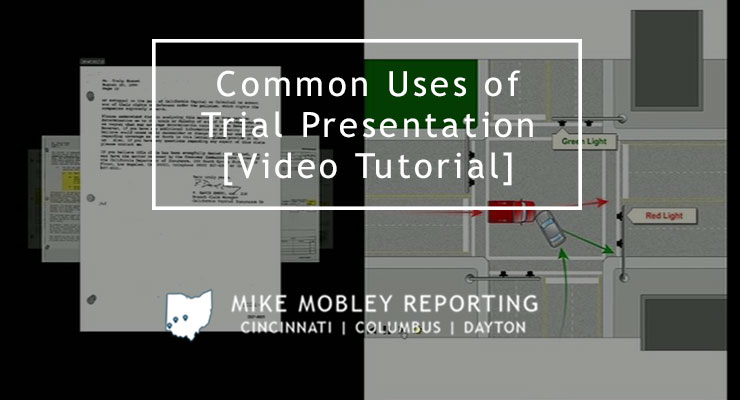The Value of High-Quality Visuals in Trial Presentations for Jurors.
The Value of High-Quality Visuals in Trial Presentations for Jurors.
Blog Article
Why Trial Presentations Are Important for Convincing a Court
Trial discussions play a pivotal function in the lawful procedure, serving as a vital device for persuading jurors. By effectively streamlining complex lawful concepts and including aesthetic help, lawyers can produce an interesting story that resonates on both intellectual and emotional levels. This calculated strategy not only enhances jurors' understanding however likewise promotes a much deeper connection to the situation available. As we discover the various elements that comprise an efficient trial presentation, it comes to be obvious that the art of persuasion expands much beyond simple debates. What variables absolutely raise these presentations to their important standing?
Importance of Aesthetic Aids
Aesthetic aids play a vital role in trial discussions, functioning as powerful tools to boost jurors' understanding of complex details. They can transform intricate legal ideas and valid data into easily digestible layouts, consequently enhancing jurors' retention and comprehension. In a court room setting, where interest spans might subside, aesthetic help such as graphes, charts, and timelines can successfully catch and maintain passion.
Moreover, visual aids aid in illustrating crucial factors, making abstract ideas much more concrete. An infographic can succinctly summarize a collection of occasions or relationships, permitting jurors to imagine the evidence presented. This aesthetic depiction can link voids in understanding that might develop from spoken explanations alone.
Furthermore, properly designed aesthetic help lend credibility to the instance. They demonstrate the attorney's readiness and professionalism, reflecting a thoughtful strategy to campaigning for. By offering a clear aesthetic context, lawyers can better argue their placement and encourage jurors to line up with their perspective.
Engaging Narration Strategies
An engaging story is necessary for successfully engaging a court during test discussions. Storytelling techniques can transform complex legal arguments into relatable and remarkable experiences for jurors. By building a clear and coherent narrative arc, attorneys can guide jurors through the truths, stressing bottom lines that sustain their case.
Making use of characters, problem, and resolution within the narrative enables jurors to understand the people involved, creating a feeling of compassion and understanding. Trial Presentations. This human aspect can be specifically powerful in establishing the context of the instance, making the details extra digestible
Including vibrant descriptions and pertinent narratives can even more improve the story, painting an image that resonates with jurors on a deeper level. Lawyers should concentrate on presenting the facts in a manner that highlights the stakes entailed, fostering a feeling of urgency and value.
Additionally, pacing plays an important role in storytelling; differing the tempo can preserve jurors' focus and stress crucial minutes in case. Generally, involving storytelling techniques work as a crucial tool for attorneys seeking to encourage courts and influence their decision-making process.
Psychological Connection With Jurors

To attain this link, attorneys can use vibrant storytelling, engaging visuals, and authentic statement that highlight the human aspect of the situation. Concentrating on the real-life implications of the trial can aid jurors see past the lawful jargon and appreciate the psychological stakes entailed. Such strategies motivate jurors to feel sorry for the events included, making them most likely to consider the emotional weight of the proof offered.
In addition, developing count on through genuineness and authenticity can likewise enhance this emotional bond (Trial Presentations). When jurors feel a personal link to the case, they are a lot more likely to engage deeply with the here and now arguments, inevitably making their considerations a lot more informed and impactful. Therefore, promoting a psychological link is not simply helpful; it is important for efficient persuasion in the go courtroom
Simplifying Complicated Details

Utilizing aesthetic help, such as graphes and representations, can substantially boost understanding by offering a concrete representation of abstract principles. This method permits jurors to imagine connections and effects, facilitating much better comprehension of the case's subtleties. Damaging down details right into smaller sized, digestible sections aids preserve jurors' focus and prevents cognitive overload.
Using simple language is equally critical. Legal jargon or extremely technical terms can estrange jurors and cover the core message. By using usual language, attorneys develop a bridge to get in touch with jurors, ensuring that the substance of the debate is both relatable and remarkable.
Inevitably, simplifying complicated information not just aids jurors in recognizing the case yet likewise cultivates a sense of confidence in their capability to make an informed decision, which is crucial for achieving a beneficial outcome.

Enhancing Retention and Recall
While jurors might understand intricate details throughout test presentations, boosting their retention and recall is equally vital for making sure that crucial debates resonate long after the proceedings. Efficient test discussions make use of different methods created to reinforce the jurors' memory of important truths and debates.
Aesthetic help, such as charts, graphs, and video clips, can substantially boost retention by engaging several senses, thereby developing stronger cognitive links. Combined with clear, succinct narratives, these tools help strengthen the main points, making them more memorable. Repeating of essential info throughout the discussion guarantees that vital debates are not just comprehended but additionally implanted in the jurors' minds.
One more effective approach is the usage of narration, which cultivates psychological involvement and help in recall. By mounting facts within an engaging story, lawyers can produce a lasting impact that reverberates past the courtroom.
Inevitably, enhancing retention and recall is important for encouraging jurors, as it encourages them to lug the weight of the situation's debate into deliberations. A well-crafted discussion not just notifies however additionally guarantees that jurors bear in mind the important aspects required to get to a just decision.
Final Thought
In final thought, trial discussions play a pivotal duty in convincing courts by integrating aesthetic help, engaging narration, and psychological connections. Reliable presentations boost jurors' retention and recall of crucial disagreements, inevitably affecting their deliberations.
Report this page